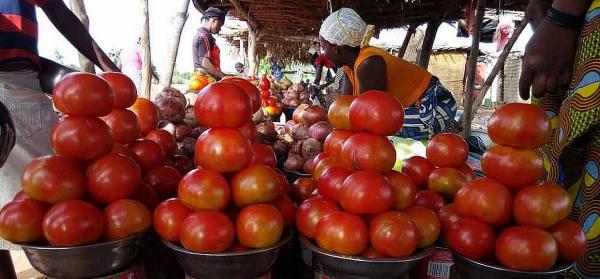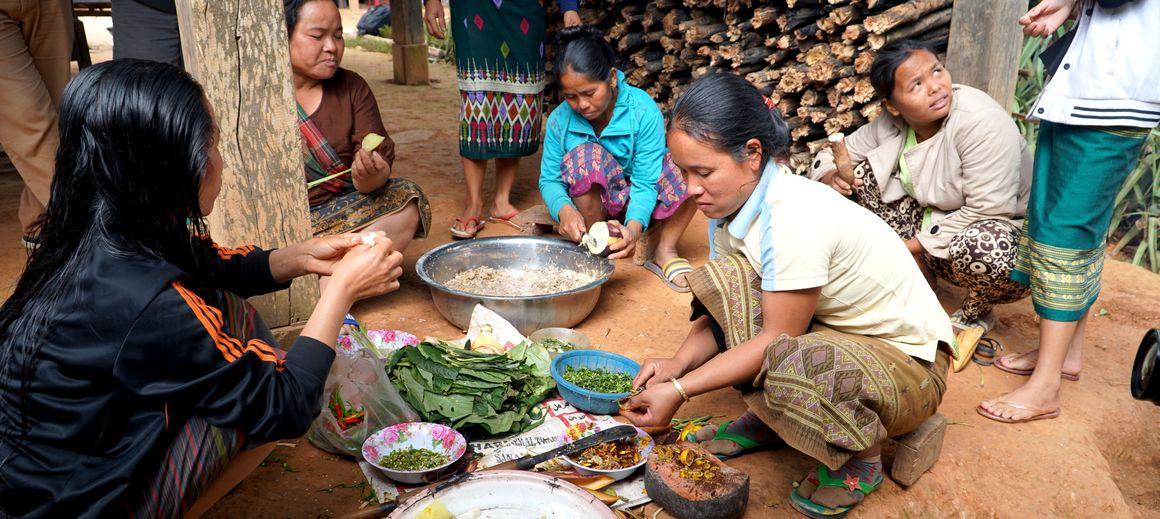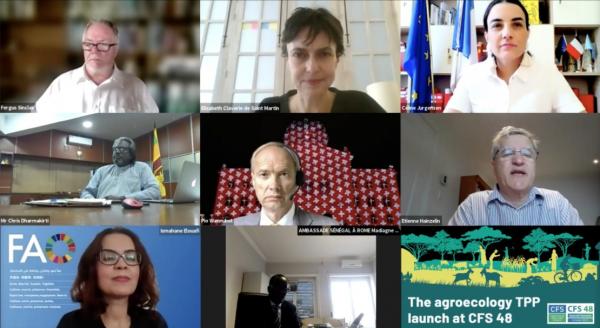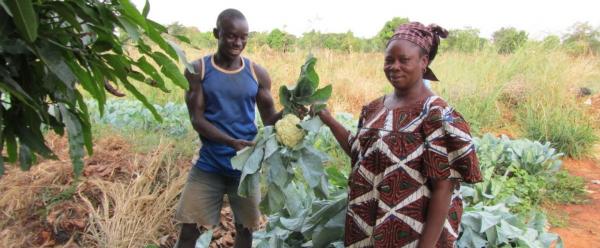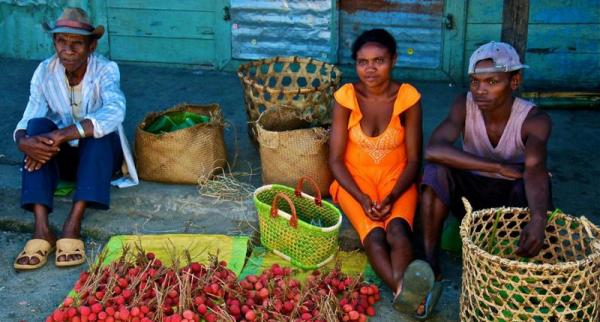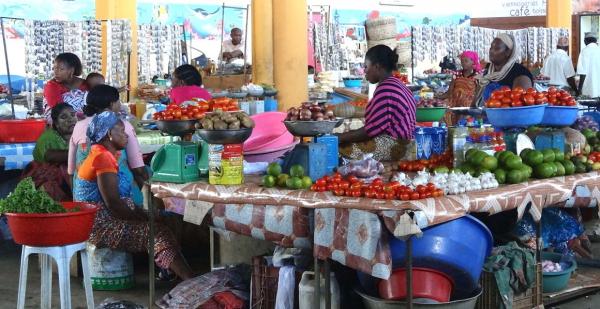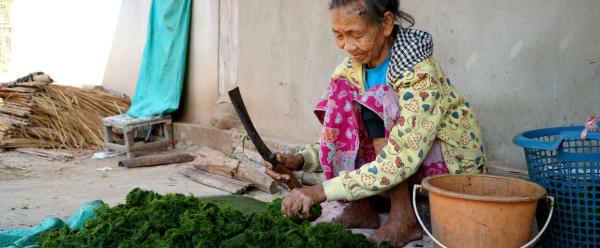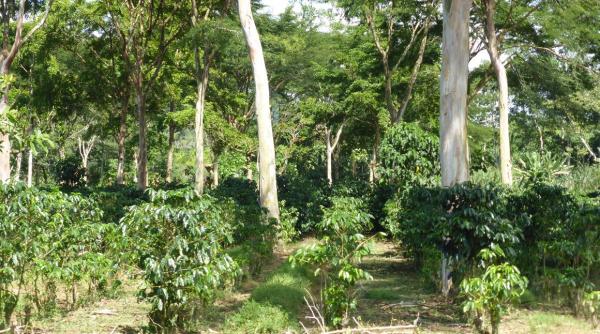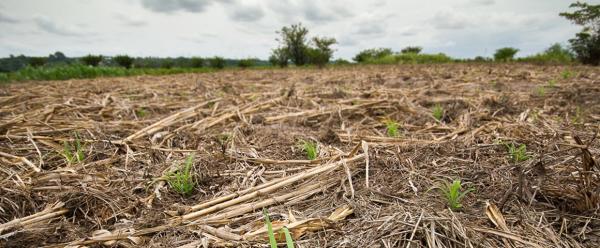Today’s food systems are not sustainable. They are responsible for around a third of global greenhouse gas emissions. This is a vicious circle, since agricultural production and livestock systems are in return impacted by climate change: limited water resources, extreme drought and flood events, disruption of the ecosystems that underpin agricultural functions, etc. At the same time, modern agriculture and livestock farming are largely responsible for soil degradation, biodiversity loss, forest destruction and freshwater pollution, among other things. This situation is untenable, especially given that three billion people cannot afford a healthy diet, 811 million are suffering from hunger, and 41 million from famine.
Nutrition, health, jobs, climate, biodiversity, and so on... Food systems lie at the crossroads between the major challenges for humanity. They are an absolutely crucial brick in the sustainable development wall. Based on its several decades of experience in tropical and Mediterranean countries, CIRAD is calling for a far-reaching transformation of food systems. It has just published a position paper setting out the five priorities if it is to contribute to those transformations.
A people’s and solutions summit
The Pre-Summit of 26-28 July enabled numerous stakeholders to take the floor: representatives of states, indigenous peoples, civil society, young people, producers’ associations and the private sector. “Gender issues and the role of women in food systems were also addressed”, says Sandrine Dury, an expert in food systems at CIRAD. More than 2 000 initiatives and solutions for more sustainable food systems were presented, further to hundreds of consultations organised throughout the year ahead of the summit. The tens of thousands of people who participated shared their experience and honed their arguments to accelerate the transitions.
CIRAD is particularly committed to agroecology and school food
Multi-stakeholder coalitions and national transformation pathways are now being structured with a view to delivering these solutions at the United Nations Summit, and must continue afterwards. CIRAD has been particularly involved in two coalitions, one on agroecology and the other on school food.
The goal of the first coalition is to transform food systems through agroecology, a concept consisting in applying ecological principles to agriculture in order to enable the sustainable use of resources while meeting the need for more equitable food systems.
More than 800 organizations and experts today launched a call to governments, private companies and civil society to adopt 13 key principles for transforming food systems.
CIRAD has made agroecology one of its priority research topics and is actively involved in this area in the field and internationally.
The Agroecology Transformative Partnership Platform, to promote agroecology as a way of transforming food systems, was launched on 3 June 2021 at a side event to the 48th Plenary of the Committee on World Food Security. We look back at this top-level global launch event, which brought together representatives from several countries already involved in agroecological transitions, including France.
The second coalition on school food is becoming a focus of action for food system transformation. By addressing this issue, the local authorities, national powers, and stakeholders at all levels can truly influence child nutrition, promote short supply chains and encourage waste reduction, while helping children to enjoy eating together and to learn social and cultural rules, etc. France has valuable experience in the field of school food and the UNESCO Chair in World Food Systems is coordinating a group of French scientists that will be an integral part of the research consortium for this coalition.
"A key element of CIRAD’s strategy is reducing post-harvest losses and food waste, including the circular economy. This is a crucial aspect of food system transformation."
Participatory assessments of food systems are underway in 50 countries
CIRAD is also working with FAO, the European Union and their partners in around 50 countries to produce assessments of their national food systems with the goal of improving their sustainability. The first assessment concerned Burkina Faso, followed by Madagascar, Bhutan, Senegal, Nepal, the Dominican Republic, Colombia and Malawi.
As the Pre-Summit of the United Nations Food Systems Summit comes to an end, a brief for national policymakers – Catalysing the transformation of sustainable food systems: Early Insight - Burkina Faso – has been released, the first in a series of diagnoses and large-scale consultations on food systems in around 50 countries. It fits into a vast initiative launched by CIRAD, FAO and the European Union with a view to contributing to the sustainable transformation of current food systems.
Scientists are working on all subjects in consultation with society and policymakers
Publishing scientific briefs, organising independent dialogues, participating in consultations with stakeholders from the global South: CIRAD’s researchers have provided their expertise to inform the French positions during the summit, to contribute to the outputs of the scientific group and to enrich the debate at the summit.
The United Nations Food Systems Summit is being held in New York in September 2021, on the initiative of the UN Secretary General. CIRAD and its partners are playing an active part in several events to prepare for the summit, aimed at proposing solutions and engaging stakeholders in transforming food systems, to ensure greater sustainability, resilience and inclusiveness.
By way of example, CIRAD organised an independent dialogue on geographical indications as a territorial tool for food system sustainability.
Reconciling economic viability and the protection of natural and cultural heritage through a territorial approach to food systems: this is the proposal made by the 158 participants of the Independent Dialogue on geographical indications (GIs) organised in May by CIRAD and FAO. This consultation brought together scientists, experts and professionals from different sectors and institutions in 51 countries. It provided proposals to inform the debate at the United Nations Food Systems Summit, to be held on 23 September 2021.
The Summit’s Scientific Group, chaired by Joachim von Braun, provides scientific expertise on the questions and solutions discussed for the Summit. CIRAD is represented in this group by Patrick Caron.
Several scientific briefs, drafted by researchers from CIRAD, have been published by this Group, one of which was presented during the science days for the summit in July this year.
With the number of people living in cities set to rise dramatically over the next few decades in Africa, Asia and Latin America, urban food systems in these regions will have to become increasingly responsive to food, health, social and environmental challenges. An international team of researchers coordinated by CIRAD is proposing six new categories through which we can understand food systems in cities in the global South.
The starting point for global mobilisation
This Food Systems Summit is an important step in the process of global mobilisation for the transformation of our modes of food production, processing, distribution and consumption. For CIRAD, the game changing solutions will need to be articulated on all levels, from the local to the global. They will also need to be developed in a multidisciplinary and multisectoral manner, integrating health, economic, social and ecological considerations.
Above all, “the idea of a miracle one-size-fits-all solution is outdated”, says Sandrine Dury. “Transformations need to be aligned with the needs and potential of local people. This is what CIRAD hopes to achieve through the territorial governance of food systems.”
The issue of the governance of food system transformation, along with that of the science-policy interface, from the local to the international level, will be crucial for the future and the effectiveness of the actions undertaken.
Do “Business as Unusual” to accelerate the transformation of food systems. This call is aimed at scientists and policy-makers and is structured around four pillars to reveal the huge potential of their interactions. It follows the event entitled “Bonding science and policy to accelerate food systems transformation”, held on 4 February 2021, ahead of the United Nations Food Systems Summit. On the occasion of World Day of Action Against Hunger, we explore the summary and recommendations resulting from these debates.
